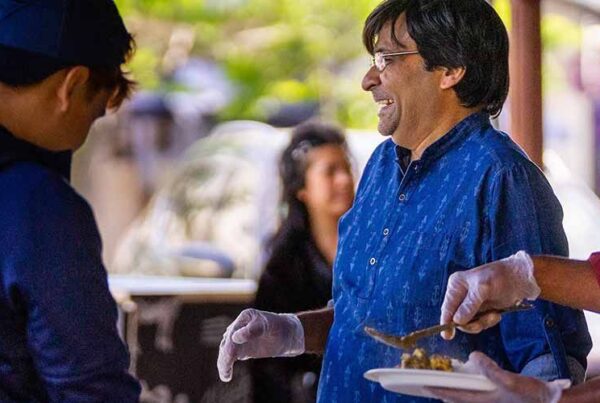What does a typical Valentine’s Day look like for you? Is it taking your Valentine out to a homely café? Seeing a smile on their face as they read your handmade card? Or perhaps you and your partner are making popcorn at home, and will then settle down on the couch to watch a movie that you both love?
Either way, if you have made your Valentine happy and shown that you genuinely care about them, your Valentine’s Day is a success.
Relationship Goals
Typically, many couples would like to do things together such as couples massage, travelling abroad, stargazing at a park etc. Funnily enough searching up “relationship goals” on Google comes up with none of these things! What is listed however, is ‘putting each other first’, ‘understanding each other’s mindsets’ and ‘supporting each other’.

Common Relationship Roadblocks
So, if these should be the goal for every relationship, then why do we have so many conflicts and split-ups among partners?
There are three roadblocks on the path to a healthy relationship.
Roadblock 1 – Focusing on initial thrills.
Do you ever find yourself feeling too bored within a couple of months of a newfound relationship? Feeling that the ‘spark’ is no longer there? You may find yourself inadvertently seeing the negatives in that person, and then proceeding to see someone new every two months because it feels way too long to spend time with one person.
Roadblock 2 – Miscommunication.
Do you ever feel that you have not been understood properly in a relationship? That no matter how many times you explain your feelings to your partner, you never feel any reciprocation? When expressing opinions and emotions in a relationship, it is important to clearly communicate them across to your partner.
Roadblock 3 – False Pride.
Focussing solely on your wants and needs, which may be totally different from your partners can result in unwanted chaos in a relationship. Being unwilling to acknowledge these differences and being wrapped in this conception of “I” “me” and “mine” shows that one’s false pride is getting in the way of a healthy relationship.

Breaking the roadblocks
Breaking roadblock 1 requires you to pause, be patient and face the reality. Rather than hankering after that initial spark you felt when you first met your partner, start to nurture, cherish and appreciate the good qualities that attracted you to them in the first place, and politely tolerate weaknesses. After all no one is perfect! Being tolerant and caring enables you to discover new things about your partner in the process. Therefore, relationships are often likened to trees:
“Love is planted by active care, rooted in trust, watered by words, nourished by struggles together, protected by commitment, decorated by fond memories and made to blossom with reciprocation.” ~ Shubha Vilas Das, Author of various lifestyle and wisdom books
Roadblocks two and three are intertwined: reducing false pride within a relationship can resolve most miscommunication issues. Take the following true story as an example:
A couple who had been arguing for weeks on end finally came to a couple’s counsellor for advice. After expressing their opinions and feelings, out of sheer frustration the husband said, “I’m tired of her disrespecting me. My ego just cannot take it anymore”! When asked to give an example, he said that she always gives me the end piece of the loaf of bread for breakfast, which where he grew up (America) was always thrown to stray dogs to eat! The wife looked at her husband in surprise and said, “Where I come from in Italy, the end piece of loaf is the best part I sacrifice it for you every morning because I love you!”
As demonstrated by the above incident, keeping one’s own belief system in the centre of a relationship can act like a filter that prevents us from understanding another’s belief system, leading to miscommunication – the symptom of an unhealthy relationship.
Often it is said that people come into relationships, aspiring to be the other half to their partner. In other words, the mindset is often what they can get from the other partner to complete themselves. Spiritual and social activist Bhakti Tirtha Swami says that when two people come together in a healthy relationship, it should be about what they can both contribute to each other and the relationship, not what they can get out of it, and this can lead to higher levels of effective communication and understanding.

Bringing selflessness to relationships
In essence, a relationship is a selfless act which is the core of real love. When we learn to appreciate one’s partner as God’s beloved child entrusted in our care, trying to serve and love them, putting them first becomes so much easier!
Interestingly the origins behind St. Valentine’s Day follows Saint Valentine, a priest who voluntarily sacrificed his life for the well-being of others. So let us take a page out of his book, and try to simply live to care for, appreciate and serve each other, and thus our relationships can thrive.
While we should develop these qualities and traits in a mutual relationship, we must also think beyond our cocoon and carry this service attitude forward to the community at large. One of the ways to do this is participating and contributing to the world-famous “Food for Life” program run by Hare Krishna Melbourne. Our volunteers cook 5,500 free or low-cost meals per week to distribute to the homeless and needy! And the backbone behind this initiative is the words of our founder, A.C Bhaktivedanta Swami, “Let every man in Melbourne come and eat!”
So just as the nature of the sun is to be warm and sugar to be sweet, our true nature and happiness lies in serving and caring for one another. So let us use this Valentine’s Day as an opportunity to not only start showing selfless service and care for our partners, but also to the world around us.




